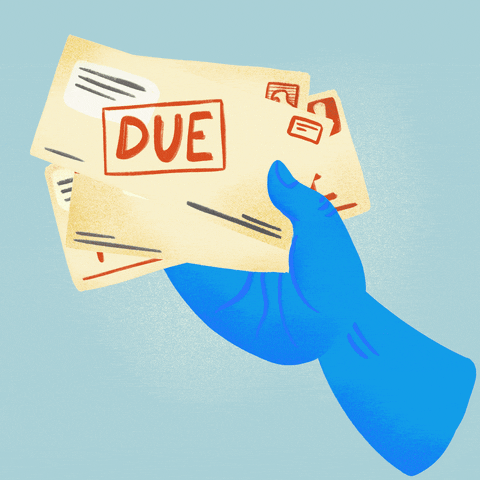
General Bills:
There are several ways you can lower your bills. Here are a few suggestions:
- Shop around for a better deal on your utilities, such as electricity and gas. You may be able to find a provider that offers lower rates than your current one.
- Reduce your energy consumption by turning off lights and appliances when not in use, using energy-efficient appliances, and sealing air leaks in your home.
- Consider switching to a cheaper cell phone plan or internet provider.
- Cut back on subscription services, such as cable TV or streaming platforms, and opt for cheaper alternatives.
- Negotiate with your creditors to lower your interest rates or monthly payments.
Remember to also keep an eye on your budget and make sure you’re not spending more than you can afford. By taking these steps, you can save money and lower your bills.

Taxes:
Taxes are one of your biggest bills, There are several ways to reduce your tax burden and save money on your taxes:
-
Contribute to a retirement account: Contributions to certain types of retirement accounts, such as 401(k)s and traditional IRAs, may be tax-deductible, which can lower your taxable income.
-
Take advantage of tax credits and deductions: There are many tax credits and deductions available to individuals and businesses that can reduce your tax liability. Some common examples include the child tax credit, the mortgage interest deduction, and the charitable contribution deduction.
-
Use tax-loss harvesting: If you have investments that have lost value, you can sell them and use the loss to offset gains from other investments, reducing your overall tax liability.
-
Keep good records: Proper record-keeping can help you take advantage of all the deductions and credits you are entitled to. Make sure to keep receipts and other documentation for any expenses that may be tax-deductible.
-
Work with a tax professional: A tax professional can help you identify tax-saving opportunities and ensure that you are taking advantage of all available deductions and credits.
It’s important to note that it is illegal to evade paying taxes, so it’s important to pay the taxes you owe and not to engage in any illegal tax avoidance schemes. However, by following the legal strategies above, you can reduce your tax burden and save money on your taxes.

Paying interest Debt:
Here are a few strategies you can use to reduce the interest on your debt:
-
Consolidate your debt: If you have multiple debts with different interest rates, consolidating them into a single loan with a lower interest rate can save you money on interest.
-
Negotiate with your creditors: If you have a good payment history and a strong credit score, you may be able to negotiate a lower interest rate with your creditors.
-
Transfer your balance to a credit card with a lower interest rate: If you have a good credit score, you may be able to qualify for a credit card with a lower interest rate. You can then transfer your balance from a high-interest credit card to the new one, saving money on interest.
-
Use a home equity loan or line of credit: If you have equity in your home, you may be able to borrow against it to pay off high-interest debt. Home equity loans and lines of credit typically have lower interest rates than credit cards.
-
Consider a debt management plan: If you have a large amount of debt and are having trouble making your payments, a debt management plan may be a good option. This involves working with a credit counseling agency to come up with a plan to pay off your debt over time at a lower interest rate.
By using these strategies, you can reduce the amount of interest you pay on your debt and save money in the long run. However, it’s important to be careful when using these strategies, as they can have risks and may not be suitable for everyone. It’s a good idea to consult with a financial professional before making any major decisions about your debt.



